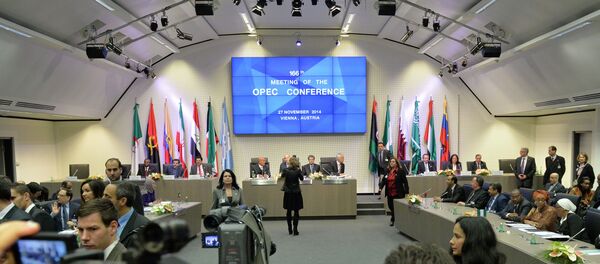First of all, it says, despite the oil prices contributing the largest share to the country’s budget, Russia is able to ‘tolerate its low cost much better than any OPEC members”.
“Russia’s budget deficit is projected to be about 3 percent of economic output this year, according to Finance Minister Anton Siluanov,” Bloomberg says. “Saudi Arabia, OPEC’s largest producer, will have a budget gap of almost 20 percent, the International Monetary Fund forecasts.”
The agency also cites the Russian Energy Ministry as saying that even if Russia wanted to turn the tap off, “it doesn’t have the ability of some Persian Gulf producers to quickly raise or lower output because of the harsh winters and complex geology at its Siberian oil fields”.
“You cannot regulate the productivity of Russian wells simply by turning a faucet,” it quotes Sergei Klubkov, an exploration and production analyst at Moscow-based Vygon Consulting, as saying via e-mail.
Russia also doesn’t have a single state-owned company that controls the nation’s oil production, such as the Saudi Arabian Oil Co. or National Iranian Oil Co, Sechin elaborated.
The number of publicly traded producers means the nation couldn’t curb output like an OPEC member.
Russian oil companies aren’t clamoring for an alliance with OPEC, the agency says. They are actually outperforming their international peers in metrics such as cash flow and profit margins. Russian oil extraction and export tax rates shrink at lower prices, giving companies a buffer against the slump in crude.
Iran, which produces a similar grade of crude to Russia, is preparing to ramp up production by as much as 1 million barrels a day next year after reaching an agreement to lift international sanctions.






